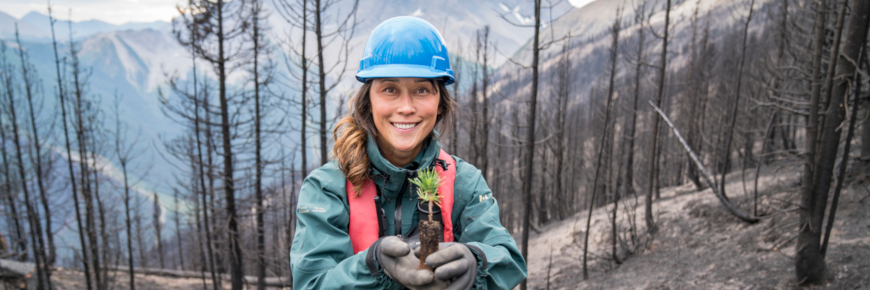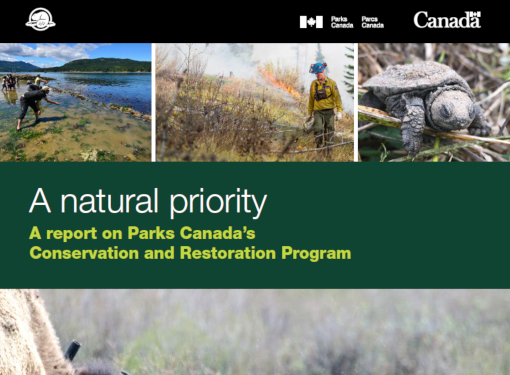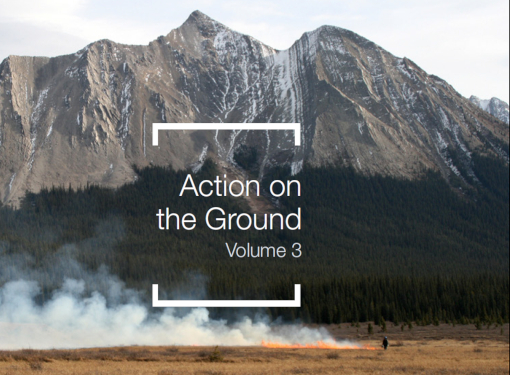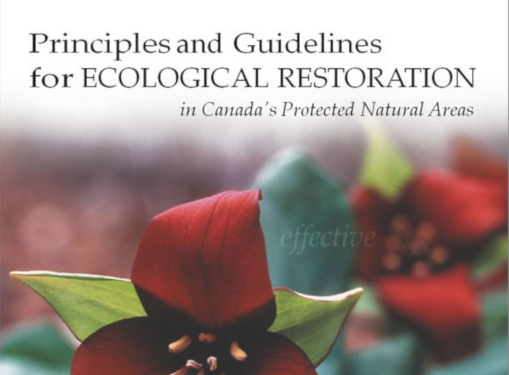
Ecological restoration
Why do we restore?
Protected areas rarely contain complete, unaltered ecosystems, particularly in densely populated southern regions.
The ecological integrity of protected areas, and thus their ability to conserve biodiversity and natural capital, faces a number of challenges including invasive species, habitat fragmentation, downstream effects of air and water pollution, and global climate change, all of which contribute to degradation of protected area ecosystems.
Ecological restoration provides a way of slowing, halting or reversing ecosystem degradation.
Parks Canada’s Conservation and Restoration (CoRe) projects are as varied as the 33 national parks, national historic sites and national marine conservation areas in which they occur.
The diverse projects outlined in this 2018 report run the gamut from restoring forests to re-establishing eel grass; from recovering threatened whales to saving endangered plants; from reducing over-abundant moose to decreasing plentiful urchins; from mitigating invasive species threats to alleviating problems caused by roads.
This third Action on the ground report (2013) provides an overview of our efforts to restore ecological integrity in national parks.
To be successful, ecological restoration should be:
- effective by re-establishing and maintaining natural and cultural values of protected areas
- efficient by maximizing beneficial outcomes while minimizing costs in time, resources and efforts
- engaging by ensuring collaboration with partners and stakeholders, promoting participation and enhancing visitor experience
Principles and guidelines for ecological restoration in Canada’s protected natural areas (2008) is the first-ever Canada-wide guidance for ecological restoration practices.
This publication is the result of collaboration among experts and managers from Canada’s federal, provincial and territorial parks and protected areas agencies, Canadian and international universities, the US National Park Service, the Society for Ecological Restoration (SER) International, and SER’s Indigenous Peoples Restoration Network Working Group.
Related Links
- Action on the ground: Ecological integrity in Canada’s national parks (2005)
- Action on the ground II: working with Canadians to improve ecological integrity in Canada’s national parks (2008)(PDF, 4.3 Mb)
- What is ecological integrity?
- Impact assessment
- Protecting species
- Invasive alien species
- Fire management
- Canadian Parks Council
- Society for Ecological Restoration
- IUCN – World Commission on Protected Areas
- Date modified :


